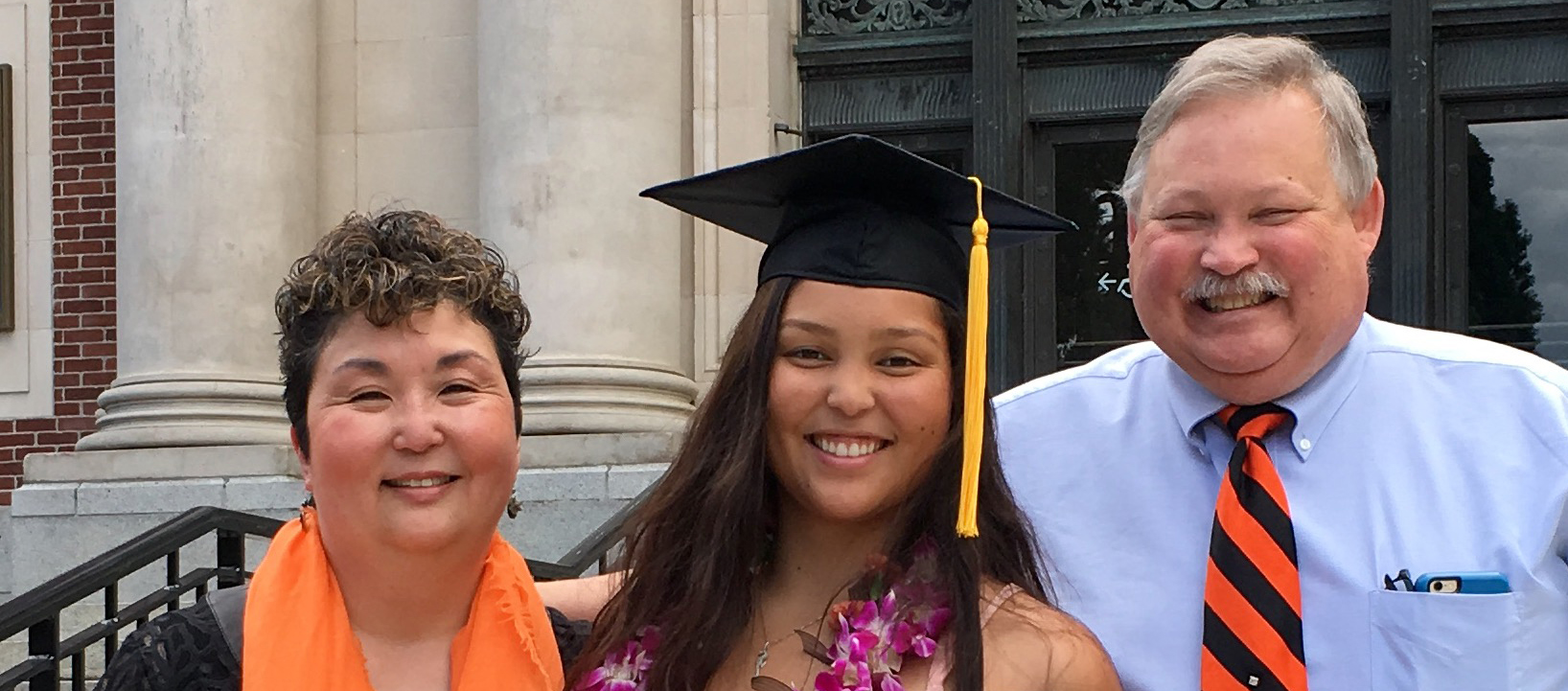Dec. 16, 2020
By Jens Odegaard
It might seem hard to pinpoint a favorite moment from 36 years of veterinary practice. But for Dr. Mike Bellinghausen (D.V.M. ’84), there’s no contest. “It came after 35 years of private practice in November of 2019,” he said. Bellinghausen was standing outside a temporary clinic in an old auditorium in Cuzco, Peru having just finished a week with the World Vets organization, which provides veterinary care to underserved regions around the globe. His daughter Stephanie (B.S. Biology ’16) was by his side.
“My daughter, a second-year veterinary student from the University of Edinburgh flew from London (a nearly 20-hour flight) to join us,” Bellinghausen said. “Our group ended up spaying and neutering nearly 300 dogs and cats in ‘field conditions.’” They’d also set up an outreach clinic in an outlying village for a few days “where we treated dogs, cats, llamas, sheep and whatever came to us,” Bellinghausen said. “Being able to experience this with my daughter was truly the highlight of my career.”
Though a standout memory, giving back through, and to, his profession is a lifelong habit for Bellinghausen. He started in high school. Growing up in Salem, Oregon in the 1970s, Bellingshausen heard an effort was underway to convince Oregon state lawmakers to “build a veterinary school down in Corvallis,” he said. “I’d always wanted to be a veterinarian … So I went down to the state Capitol and lobbied for the vet school.”
Thanks to efforts from Bellinghausen and many others, the College of Veterinary Medicine at Oregon State University opened its doors in 1979 (it was named the Carlson College of Veterinary Medicine in 2018). After earning an undergraduate degree in microbiology at Oregon State, Bellinghausen entered the veterinary program and was a member of the class of 1984 — the college’s second.
His wife Debbie also earned two degrees (both in microbiology) at Oregon State, a bachelor’s in 1979 and a master’s in 1984. Their careers took them to the Seattle area after college.
In 1990, an opportunity opened up for Bellinghausen to buy a private practice in Seattle suburb Kenmore. “We had to use all of our savings,” Bellinghausen said. “We had about $20,000 and put that as a down payment for a loan to buy the hospital.” The investment paid off. By the time they sold Kenmore Veterinary Hospital three years ago, it was a thriving three-doctor clinic.
Over the years, Bellinghausen has been active in the Seattle King County Veterinary Medical Association and the Washington State Veterinary Medical Association serving as political action chair and on several committees focusing on education. He’s also served on the Western Interstate Commission for Higher Education Advisory Committee and regional Steering Committee and was a member of the Washington State University College of Veterinary Medicine’s interview committee for six years. “I’ve always been education-driven and student-driven,” Bellinghausen said.
Now semiretired (he still helps cover at his old clinic when needed), Bellinghausen is giving back to veterinary education in other ways. He recently finalized the paperwork through the OSU Foundation to establish the Dr. Mike Bellinghausen ’84 Endowed Scholarship Fund at the Oregon State University Carlson College of Veterinary Medicine. “I wanted to give back to students in an effort to help with the high cost of veterinary education,” Bellinghausen said.
In particular, Bellinghausen wants to help provide access to the profession for students who’ve historically been underrepresented. “I really wanted to help the American Veterinary Medical Association in its quest toward diversity,” he said. “We need to reflect the world that we practice in. And, at least in the Seattle area, our clientele is a very diverse group of nationalities.”
Bellinghausen’s own family is a testament to this. He is white. “My wife is Japanese American and my daughter is half Japanese, half Caucasian” he said. “So I’ve been looking at it through my daughter’s eyes.”
Bellinghausen looks to a future where the industry in the United States is not nearly 90% white, only 6.1% Asian, 1.6% Hispanic or Latino and with almost no African Americans (as it currently is according to 2019 data from the Bureau of Labor Statistics).
He imagines a young adult in the future seeing role models that reflect them and the world around them. “As more diversity occurs, they can say: ‘There's an African American veterinarian in this practice. Oh, I can be that,’” Bellinghausen said. That’s what giving back is about for him: leaving a better, more inclusive, profession for the next generation.










